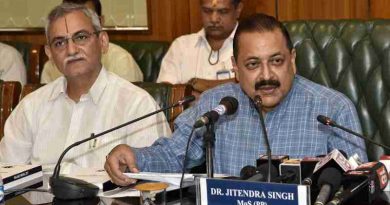PM Modi Approves Amendment in the Teacher Education Act

The Union Cabinet chaired by India’s Prime Minister Narendra Modi approved Wednesday the introduction of a Bill in Parliament to amend the National Council for Teacher Education (NCTE) Act, 1993, namely the National Council for Teacher Education (Amendment) Act, 2017.
It aims to grant retrospective recognition to the Central / State / Universities which are found to be conducting teacher education courses without NCTE permission.
The amendment seeks to grant retrospective recognition to the Central / State / Union Territory funded Institutions / Universities conducting Teacher Education Courses without NCTE recognition till the academic year 2017-2018.
[ Why Delhi Government Must Terminate the Jobs of School Teachers ]
The retrospective recognition is being given as a one-time measure so as to ensure that the future of the students passed out / enrolled in these institutions are not jeopardized.
The amendment will make students studying in these Institutions / Universities, or already passed out from here, eligible for employment as a teacher. With a view to achieve above-mentioned benefits, Department of School Education & Literacy, Ministry of Human Resource Development has brought about this amendment.
[ Should Delhi Government Regularize the Services of Guest Teachers? ]
All institutions running Teacher Education Courses such as B.Ed. and D.El.Ed. have to obtain recognition from the National Council for Teacher Education under section 14 of the NCTE Act. Further, the courses of such recognised Institutions / Universities have to be permitted under section 15, of the NCTE Act.
NCTE wrote to all Central Universities and / State Governments / State Universities / District Institutes of Education and Training (DIETs) informing them about the legal provisions making it mandatory to seek prior permission for starting Teacher Education Courses and giving them time till 31-03-2017 to inform NCTE if any such Institution / University is running a course without permission of NCTE, for a one-time resolution of past issues.
[ Why Are Most Degree Holders Unemployed in India? ]
The NCTE Act, 1993 came into force on 1st July, 1995 and is applicable throughout the country, except the State of Jammu and Kashmir. The main objective of the Act Is to provide for the establishment of a NCTE to achieve planned and coordinated development of the teacher education system, regulation and ensure proper maintenance of norms and standards in the said system.
In order to achieve the objectives of the Act, separate provisions have been, made in the Act, for recognising Teacher Education courses and to lay down guidelines for compliance by recognized Institutions / Universities.






